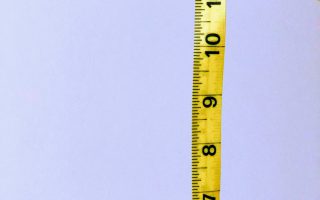Disclosure: This post may include affiliate links through the Amazon affiliate program or other affiliate partnerships. If you click on a link and buy something, I may receive a commission, at no additional cost to you. You can read more boring disclosure details in my disclosure and privacy policy.
The birth of a baby is one of the defining moments in any woman’s life. One tiny little human has the ability to completely change your view of the world, the way you relate to those around you, and expose so many strengths and weaknesses you never knew were there.
When my little precious pie was born, as we like to call her, I was determined that I would breastfeed. I’m not exactly sure why, but I was passionate about being able to provide for my child in that way.
With that said, this is simply a documentation of the experiences I had in the first few months after my daughter’s birth as we both learned how to nurse.
This is in no way professional advice, and I would encourage anyone and everyone who is breastfeeding to seek the advice of a board-certified lactation consultant. Even if you think everything is already going well, they can offer life-changing insight into the breastfeeding relationship.
Also, while I would encourage every woman to pursue breastfeeding, this is not meant to discourage anyone who decided to give their baby formula. Fed is best, and I commend every mother who knew that formula would be best for their baby.
So, this is not a formula-shaming, professional account of breastfeeding – this is my personal story. There are many blog posts in the world that share practical tips for nursing, but very few posts that share the internal dialogue of a new mother. I want to change that, and begin to start a new trend of blog posts that describe the storm of worries and emotions that take place when you have a child.
I noticed that after my baby was born, and I began to talk about my experience with other mothers, they would chime in with the challenges they faced breastfeeding their first child. After hearing so many women talk about nursing after overcoming our challenges, I kept thinking, “How much more prepared would I have been if all the mothers I knew shared their stories?”
I am sharing this story in hopes that expecting mothers, mothers of newborns, and seasoned veterans will read this account and relate. I hope that mothers will realize they are not alone in the emotional rollercoaster of breastfeeding. And I hope that my story, while it was difficult, will show those that also experience difficulty that it is possible to breastfeed their child.
So, folks, this is a long one! Sit down with a bowl of ice cream (or some carrots, for you health nuts out there), a blanket, and read on.
The First 48 Hours
While I would love to talk about the birth of my beautiful baby girl, that is a story for another day. The important thing to note here is that I was induced at 37 weeks over the course of 48 hours because the doctors and midwives suspected I had a very rare form of preeclampsia known as HELLPs.
HELLPs can cause some very serious side effects, such as seizures, and the only cure is delivery. So, I was induced into labor, and placed on Magnesium, a medication used to prevent seizures in preeclamptic pregnant women.
Magnesium sucks. It makes you feel like you have the flu – as if being in labor isn’t bad enough. This meant that I was physically exhausted, and I hadn’t even pushed out a baby yet.
As many pregnant women know, medications that the mother takes filters through the placenta to her baby. Essentially, because I was on magnesium, my baby was also on magnesium and would have the same side effects.
Shortly after delivery, the nurse asked me if I would like to try to breastfeed. I was very excited for this moment; in my head, it was a beautiful, joyous moment in which my newborn would latch on by herself and find glorious nourishment.
In reality, this moment was three nurses grabbing my boob from different directions and pushing my hand over the baby’s head trying to shove her onto my nipple.
My baby did not latch. Her mouth covered my nipple, I guess, but she did not suck at all. She just kinda… cuddled with my boob.
My baby did not nurse at all in that first session. The nurses shrugged it off, saying “It’s cause she was on the mag. It’ll wear off, then she’ll get better.”
The next few nursing sessions looked pretty much identical. My baby never woke up on her own, because she was so sleepy from the medicine, and she never sucked more than once or twice every time I was able to get her to latch on before falling back to sleep.
The shift of nurses changed a few times in those 48 hours, and each time they would comment “No worries, the mag will wear off soon and then she’ll really wake up.” There was even a lactation consultant in the hospital that came to see me and made the same comment. She was satisfied that the baby gave a couple good sucks, and simply said that the baby would wake up soon and really begin to nurse.
Let me say here that the nurses I had truly were wonderful. They took care of me in some of the most intimate moments of my life thus far. To them, they really saw no reason to be worried. Every couple of hours they asked if she had any wet or dirty diapers, which is the standard measurement of intake for breastfed babies. My baby girl had plenty of wet and dirty diapers, despite not latching or suckling successfully.
Later, I would learn from my pediatrician and a lactation consultant that the IV fluids I was on during the delivery caused my baby to appear to be well-hydrated with plenty of dirty and wet diapers. I also learned that magnesium could take up to a week to leave the baby’s system, which is why she never really woke up to nurse.
Once we got home, I kept trying to nurse her, but I felt so confused. She never really latched on, or she would fall asleep instantly. Every two to three hours I would try to nurse her for an entire 20 minutes, but the entire time consisted of me unlatching and re-latching her, or using all of the tricks I was taught to wake her up. My neck and shoulders ached from looking down at her.
I am fortunate to have a sister who had a baby only five weeks before I did, and we FaceTimed each other with our babies. She used her baby boy to demonstrate ways to get my baby to open her mouth and latch on.
I was constantly worried my daughter was not getting enough to eat, but I thought I was just being consumed by the typical worries of a first-time mother. The well-meaning mothers around me reassured me that everything was fine, saying things like “Don’t worry about nursing, it comes naturally, and they need so little in the beginning,” or, “I wouldn’t try to pump and feed her, it will only confuse her and make you worry about your supply.”
So, we pressed on, and I tried to do my best not to worry and trust that she was ok. After all, she was sleeping and content, and a hungry baby is supposed to cry, right?
The First Pediatrician Appointment
In New Jersey, it is standard practice to take your newborn to the first pediatrician appointment three days after delivery (Is this the case everywhere? Let me know!).
My husband and I headed to the doctor with our tiny baby in tow. She weighed 6 pounds, 15 ounces at the time of delivery and hadn’t lost too much when we left the hospital. But, as we put her in her carseat to go to the doctors, I remember worrying that she looked too small, and that she looked slightly yellow.
The doctor confirmed my worst fears. Her weight had dropped to just under 6 pounds. He weighed her, looked at her for one minute, left the room and came back with 6 bottles of formula.
When he said he wanted me to give the baby formula, I immediately asked if I could instead pump and bottle feed her since my milk had come in the night before. I knew that if I didn’t pump, my supply would go away, and I would have to give formula from then on.
The pediatrician told me that I was starving my child. He pointed out that her skin was jaundiced, and that she was crying (but only when her clothes were taken off to be weighed, mind you). He told me that I was starving my child and that I had to give my baby formula. I broke down crying, right there in his office.
Let me pause here and say that this was a particularly terrible pediatrician experience. I truly hope and pray that no mother has to hear this from a pediatrician, because it gave me a complex for months that I wasn’t feeding my baby enough. Breastfeeding is difficult enough as it is, and I would encourage all expecting mothers to find a pediatrician that encourages breastfeeding and follows the AAP recommendation that breastmilk should be the primary form of nutrition for the first six months.
The First Lactation Consultant
After we got home from the awful experience that was the pediatrician, and after crying all over again while talking to my mom about what happened, I felt even more lost than I did before.
Now I knew there was a problem with my baby’s weight and that she wasn’t getting enough. But I was confused and scared. There were six bottles of formula, sitting in a black garbage bag, staring at me in the corner of the room.
I obviously wanted my baby to be fed. I also wanted what was best for her long-term, which I strongly believed was breastmilk, not formula. My husband suggested that we call someone for help. So, we rifled through the stack of papers from the hospital and found one that had a list of phone numbers of breastfeeding resources, including one on-demand free lactation consultant service.
I was able to get in contact with someone within an hour. It was the opposite of the experience I had with the pediatrician. She asked me questions about the birth and about everything we had tried so far regarding nursing. She took the time to listen to my concerns, questions, and viewed my baby as an individual rather than a number on a scale.
The consultant explained all of the factors that had likely played a part in my baby having trouble feeding. Magnesium can take up to a week to leave an infants system, and after my baby’s weight dropped below 6 pounds, she didn’t have the energy to sustain herself through an entire nursing session (similar to premies in the NICU). She also said that the doctor should have been following the AAP recommendation that infants are breastfed until 6 months old, and that if he was truly worried about her weight, he should have sent us back to the hospital, not home with formula.
The lactation consultant encouraged me that as long as we protected my milk supply, we could always work with the baby.
So, disregarding everything the internet says about avoiding baby bottles because of ‘nipple confusion,’ I began pumping and bottle feeding her every three hours. The bottle is much easier for the baby, though it is important to practice “Paced bottle feeding,” a method that allows the baby to control the flow of the milk. Also, though almost everyone tells new mothers to feed their babies on demand, we didn’t have that option; my baby literally never woke up demanding to be fed, so we had to wake her up to give her the nourishment she needed.
My husband was a tremendous help during feedings. He would set the pump up for me and wash all of the parts after I was done. He brought me snacks and water, and most importantly, encouraged me. It was honestly just amazing to have him awake beside me so that I didn’t feel alone in the middle of the night.
Fast forward one week later, and my baby was over 7 pounds at the pediatrician’s office, half a pound over what he expected her to gain. I felt so proud of all of our hard work pumping, and I honestly loved telling that terrible doctor that she hadn’t had an ounce of formula.
The Second Lactation Consultant Visit
We left the doctors office celebrating and excited about the progress our little girl had made. Naiively, I assumed that from here on out, everything would be smooth sailing, because she had gained enough weight to theoretically stay awake for an entire feeding.
Reality set in. She screamed at my breast and refused to latch. I had been offering my breast throughout the bottle feedings of the last week, but this was the first time I had tried to feed her without the bottle. We were both frustrated, and I didn’t want to have to exclusively pump for the rest of her infancy, so we called another lactation consultant.
This time, the consultant came to our house. She was there for over three hours, and was extremely helpful. She educated me on breastfeeding, listened to me, and commended us for all the decisions we had made so far as parents.
The lactation consultant explained to me that because I had been bottle feeding my baby, she didn’t know that milk came from boobs.
Enter the nipple shield. It’s basically a plastic nipple that you put over the real nipple. It can be used for a variety of reasons, but in our case, it made it easier for the baby to latch, and the plastic nipple felt familiar to her, so she calmed down enough to feed when she felt it on her upper lip.
That nipple shield was a godsend at that moment. That was the first time in my baby’s two weeks of life that she actually nursed from me. She nursed for about 15 minutes, and then relaxed, completely milk-drunk, with milk running down the sides of her mouth. I actually cried tears of joy, simply because it was so wonderful to finally experience feeding my baby the way God intended.
The consultant also diagnosed my baby with a posterior tongue tie. I was instructed not to feed her without the nipple shield until her tongue tie was taken care of, or I would risk permanent damage to my nipples. The tongue tie release (aka frenectomy) is an entire post in and of itself; it is not a simple, one-time visit to the doctor, but rather a long process of teaching the baby how to use their tongue with their new anatomy. Essentially, I had to stretch out my babe’s tongue before every feeding to prevent the tongue tie from growing back.
The consultant came two more times to my house, before and after her tongue tie release. If you live in New Jersey and need a recommendation for an IBCLC, I would love to point you in her direction.
Hospitalization
While nursing with the shield, I developed a case of mastitis. I wouldn’t wish it upon my worst enemy. In some ways, mastitis was worse than labor itself because the pain was radiating from my boob. I couldn’t move without pain shooting through my body. Nursing is the only thing that can help clear the duct, even if using a shield, but it is so painful. I also developed a severe fever which left me shivering and shaking in bed.
My OB/Midwife practice called in a prescription for antibiotics for the mastitis, and my husband drove to three different pharmacies at 2 am until he found one that was open. They worked practically instantly, but unfortunately, the antibiotics had some negative side effects.
Remember when I said I was induced at 37 weeks because they suspected I had HELLPs syndrome? Well, the “LP” of “HELLPs” stands for ‘low platelets,’ as in my blood platelet levels were alarmingly low, which led to my being induced.
I went back to the doctor only two weeks after delivery for a checkup on my blood platelet levels. The doctors immediately sent me to a hematologist, or a blood specialist, when they got the results.
My blood platelets continued to drop after delivery, but the antibiotics caused them to drop even lower and even faster. When I met with the hematologist, my platelets were at 13,000. To put it in perspective, a normal platelet number is 150,000 to 400,000.
The hematologist said that my platelets were so low that I was in danger of spontaneous internal bleeding. I was given a couple hours to arrange for my mother-in-law to come stay with the baby, and then my husband and I headed to the hospital.
Being hospitalized was honestly the worst. My treatments took place in the cancer wing, so my baby wasn’t allowed to come visit for more than a couple of hours at a time because of the chemotherapy chemicals in the air.
What’s worse, I was told that I should avoid breastfeeding while I was receiving various treatments in the hospital. I was actually told that I would need to stop breastfeeding altogether, because I would be on some of the medications for months. After all the obstacles we had overcome (my daughter’s tongue-tie release was actually earlier that day), it was devastating to think our hard work would go to waste.
I now know (based on the advice of lactation consultants) that those medications were actually ok to take while nursing, but that doctors are required to say that they ‘cannot recommend breastfeeding while receiving xxx medication/treatment.’ At the time, as a first-time mom who didn’t know any better, I listened to the doctors around me and I pumped-and-dumped.
‘Pumping and dumping’ is when you express milk via pumping and then basically pour your hard work, sweat, tears, and soul down the drain along with your breastmilk. It crushed me.
It may sound overdramatic, but waking up via an alarm at 3 am alone in a hospital room away from my husband and my child, pumping, and dumping the milk down the drain was so disheartening.
Not to mention, the mastitis started to come back because I was forced to stop the course of antibiotics and I was away from the baby.
The hospital stay only lasted three days and two nights, but it was very difficult emotionally. I couldn’t help but compare myself to other people who had recently had babies and were able to cuddle with them nonstop and breastfeed without issue. I, on the other hand, was isolated in a hospital room. I still look back at those first few weeks with sadness, because I feel that the newborn snuggles and joys of having my first child were overshadowed by medical problems.
Eventually, we were able to leave the hospital. I had to return for treatments a few times after that, but never for more than a few hours at a time. After a few months of awful steroid medication, my platelets stabilized and my body sorted itself out.
Weaning off the Nipple Shield
The nipple shield is a blessing and a curse. It’s great because you don’t have to pump anymore, but it’s inconvenient. You have to wash it off before and after every feeding. Right after you get it in position, the baby might knock it right back off.
Nursing in public with a shield requires 4 hands – one to hold the baby’s head, one to hold the shield, one to keep the baby’s arm from knocking the shield off, and one to keep the nursing cover in place. Plus it’s hard to be sneaky about pulling a nipple-shaped piece of plastic out of your bag. And if the baby knocks it off and it falls on the ground? It’s all over. You better hope there’s a sink around.
It was a wonderful tool, but it took four long months of nursing practice until my baby and I could nurse without the nipple shield 100% of the time.
A New Normal
The first few weeks, and even months, of breastfeeding were incredibly difficult. We faced weight problems, exclusive pumping, tongue tie, mastitis, and hospitalization all in a number of weeks. I had several people tell me that they would have given up. But I was determined to breastfeed, and Praise God,
We made it.
My baby is now ten months old, and we are still exclusively breastfeeding.
This account has probably been pretty depressing to read through until now, but I want to encourage anyone that is reading this with mounting anxiety that it IS possible to overcome obstacles to breastfeeding. You can successfully nurse your baby.
Our breastfeeding relationship has continued to evolve and face new challenges. Once she was weaned off the nipple shield, then she refused to take a bottle at all. Now she takes a bottle, but won’t nurse if there is anything interesting going on at all.
While these are challenges, I am so grateful for them, because I feel that they are the ‘normal’ types of challenges mothers go through. I am so glad that I had to troubleshoot how to get my baby to take a bottle, because it meant she preferred me, which was such a huge change from where we started.
I am simply proud of all of the work me and my baby put into breastfeeding.
I will fail in a million ways as a mother, but at least this one area of my mothering, breastfeeding, was a success.





Thanks so much for your vulnerability here and your willingness to be open about the whole process! Even though I’m not in the same life stage as you, it was really encouraging to be able to hear some “real” stories of things people only whisper about to non-moms. I feel like it’s helping prepare me for the future haha. (If it does become relevant someday.)
Thanks so much for your kind words, Melody. It’s not easy to talk about this stuff, but I think it’s important for people to know about how hard it can be in the beginning! <3